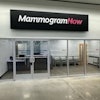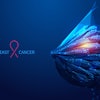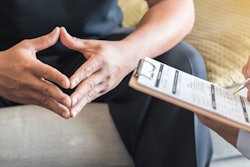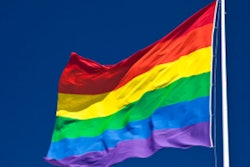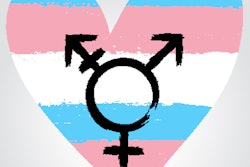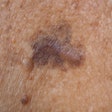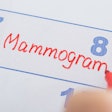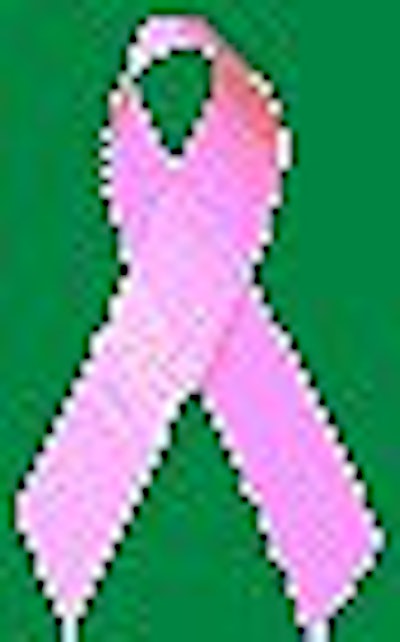
No good deed goes unpunished, as the saying goes, and that seems to be the case for singer Melissa Etheridge. Earlier this year, Etheridge donated autographed merchandise to a fund-raising auction for the National Breast Cancer Foundation.
Two years ago, Etheridge vowed to "continue to raise awareness to one of the largest diseases afflicted upon women in the world: breast cancer. I not only pledge my support toward the fight against cancer during Breast Cancer Awareness Month, but throughout the year" (Yahoo! Health Breast Cancer Health Center, October 2002).
Last week, Etheridge's publicist announced that the 43-year-old mother of two has been diagnosed with breast cancer. In a statement, the openly gay singer said she was "thankful that this was caught early."
According to another statment released today, Etheridge noticed a lump during a breast self-exam. The singer underwent a lumpectomy last weekend and is slated for additional treatment (E!Online News, October 14, 2004).
Perhaps a more interesting question is whether the news will result in a "Melissa Etheridge effect." And if so, will it be similar to the "Kate Couric effect," which bumped up colon cancer screening rates after the Today show host underwent an on-air colonoscopy? In the same vein, CT screening centers recently saw a rush for their services after former U.S. President Bill Clinton had bypass surgery.
It's too soon to tell if Etheridge's cancer scare will spur the lesbian community -- which has a history of underutilizing screening -- to take more interest in their breast health. Health researchers who study the community have mixed opinions.
Given our celebrity-obsessed society, Melissa Clark, Ph.D., associate professor of community health at Brown University in Providence, RI, believes Etheridge's situation will encourage better preventive health habits.
"In the last several years, there has been a substantial increase in the number of individuals obtaining screenings or doing other health behaviors immediately following an endorsement by a celebrity. Therefore, I expect the same to be true in the next few months following Melissa Etheridge's breast cancer diagnosis," Clarke wrote in an e-mail to AuntMinnie.com.
Others are taking a wait-and-see approach. "There is no way of knowing if Melissa's diagnosis and discussion has made an impact on screening. Needless to say, most of the mammography centers do not collect sexual orientation on their patients," according to Suzanne Dibble, co-director of the Lesbian Health Research Center at the Institute for Health & Aging, University of California, San Francisco.
Still, the issue of sexual orientation is one that may keep many lesbians out of breast cancer screening facilities. A study in the American Journal of Public Health found that lesbian and bisexual women were less likely to undergo routine breast cancer screening. The reasons included a mistrust of the healthcare community -- which tends to have a heterosexual bias -- and higher rates of smoking, alcohol use, and obesity (April 2001, Vol. 91:4, pp. 591-597).
A study by Clark and colleagues indicated that women who partner with women are afraid of discrimination if they undergo cancer screening, particularly if they have adopted a more androgynous lifestyle (Women & Health, 2003, Vol. 38:2, pp. 19-33).
The problem is that lesbians may be at a higher risk for breast cancer, according to a study that Dibble authored. Her group compared lesbians and their heterosexual, biological sisters in the established risks for developing breast cancer. They found that the gay women had significantly higher five-year and lifetime risks for developing breast cancer.
"A lesbian who comes out to her clinician is relying on the clinician to be informed and be open to discuss her life. When a lesbian has a lump or a suspicious mammogram, she needs her clinician to advocate for her within the health care system because she is at higher risk," Dibble's group concluded (Women's Health Issues, March-April 2004, Vol. 14:2, pp. 60-68).
Despite a perceived greater risk of breast cancer, screening is still not a top priority for gay women, Clarke wrote. Unlike in the heterosexual community, where even a casual association with breast cancer (through a friend or co-worker) can inspire panic in a woman, a lesbian's negative experience with screening facilities may override other concerns.
"Many lesbians have friends and loved ones who have been diagnosed with breast cancer, (and) ... still do not obtain routine screenings. While a celebrity endorsement such as Melissa Etheridge's diagnosis is likely to increase the number of women who get mammograms, these women will not sustain the behavior over time if they have negative experiences at the facilities where they seek care," she wrote.
So far, women are hardly throwing themselves on mammography units. This week, the city of West Hollywood, CA, set up breast health information kiosks at a local supermarket. An event organizer told AuntMinnie.com that the turnout on Tuesday was good, about 300-400 people, but that no one brought up Etheridge. The situation at the Lyon-Martin Women's Health Services in San Francisco may be the same, as an administrator was still checking on any Etheridge-inspired patients as of midweek.
The first of a three-part workshop for lesbians with cancer was held at the Lesbian, Gay, Bisexual & Transgender Community Center in New York City on October 7, the same day that Etheridge made her announcement. While the songwriter herself may not have been mentioned, any attention given to the issue of cancer care is impactful.
"Here in the New York City community, there has been greater interest in getting better support for lesbians with cancer," said Inga Sarda-Sorensen, direction of communications for the center. "Just knowing that there are people out there who are in the same situation, whether they are celebrities or not, means something. It lets these women know that they are not alone."
Gay health advocacy groups wouldn't turn Etheridge away should she choose to stump for mammography screening.
"I certainly think Melissa Etheridge could use her diagnosis to educate lesbians about breast cancer, and I think GLMA would welcome an opportunity to work with her to get the message out," Joel Ginsberg wrote in an e-mail to AuntMinnie.com. Ginsberg is the interim director of the San Francisco-based Gay and Lesbian Medical Association (GLMA).
Whether Etheridge will become even more vocal in the fight against breast cancer remains to be seen. One possible vehicle for raising mammography awareness could be her new ABC sitcom, which will center on a gay woman and a straight man who are raising an adopted daughter.
By Shalmali Pal
AuntMinnie.com staff writer
October 15, 2004
Related Reading
When push comes to shove: Addressing compression in mammography, October 5, 2004
Scan centers take heart in 'Clinton syndrome,' September 16, 2004
Women fail to return for annual mammograms, June 23, 2004
"Katie Couric effect" raises colon screening rates, July 14, 2003
Lesbians may be at greater risk for breast cancer, August 14, 2001
Copyright © 2004 AuntMinnie.com
